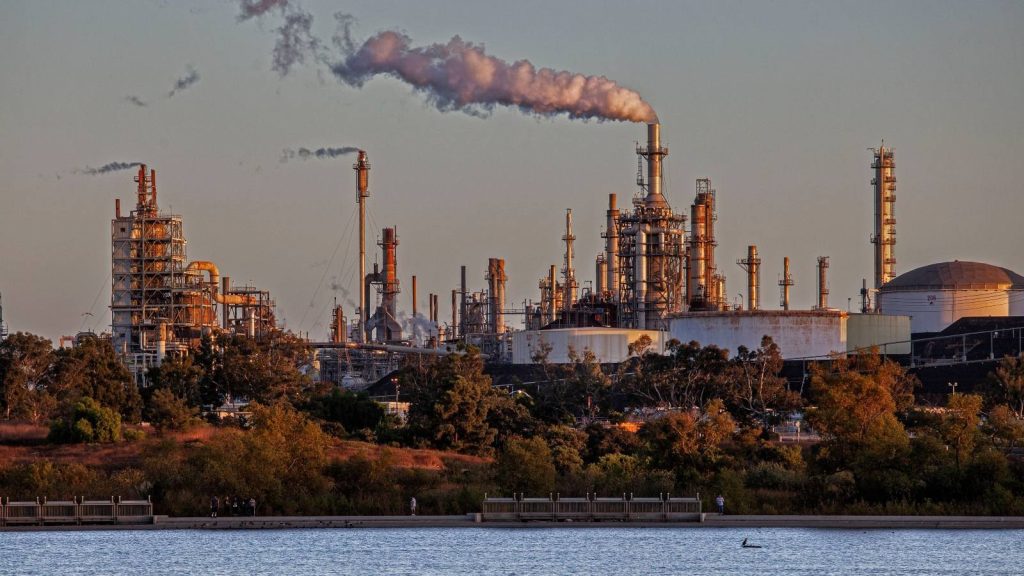Oil factories, also known as refineries, play a crucial role in the global economy, providing essential products like fuel, lubricants, and petrochemical raw materials. Keywords such as, oil factories, crude oil refining process, energy production, petrochemical products, and global oil industry, highlight the multifaceted importance of these facilities. This article explores the significance, processes, and impact of oil factories, shedding light on their contributions to modern life.
What Are Oil Factories?
Oil factories, or refineries, are industrial complexes designed to process crude oil into usable products. These facilities break down crude oil into fractions, which are then refined into fuels like gasoline, diesel, and jet fuel. Additionally, oil factories produce raw materials for plastics, chemicals, and pharmaceuticals, making them indispensable to various industries.
The Crude Oil Refining Process
The refining process transforms crude oil into valuable products through several key stages:
1. Distillation
Crude oil undergoes fractional distillation, a process where it is heated to separate its components based on boiling points. This yields products like naphtha, kerosene, diesel, and heavy residuals.
2. Conversion
Heavy fractions from the distillation process are converted into lighter, more valuable products using techniques like cracking and coking. Cracking breaks large hydrocarbon molecules into smaller ones, while coking removes carbon to produce lighter products.
3. Treatment and Blending
The products are treated to remove impurities such as sulfur and nitrogen, ensuring compliance with environmental standards. Blending combines treated components to create commercial-grade fuels and other products.
Key Products of Oil Factories
Oil factories produce a diverse range of products that fuel industries and daily life:
1. Fuels
The primary outputs include gasoline, diesel, and jet fuel, which power vehicles, machinery, and airplanes.
2. Petrochemicals
These serve as the foundation for manufacturing plastics, synthetic fibers, and chemicals.
3. Lubricants
Refineries produce oils and greases essential for reducing friction in engines and machinery.
4. Asphalt and Residuals
Heavy fractions are used in road construction and roofing materials, among other applications.
The Role of Oil Factories in Energy Production
Oil factories are pivotal in meeting global energy demands. They convert crude oil into fuels that power transportation, industries, and households. This energy drives economic growth, supports infrastructure, and fosters innovation.
Environmental Challenges and Sustainability in Oil Factories
Despite their importance, oil factories face criticism for their environmental impact. Addressing these concerns involves adopting sustainable practices:
1. Emission Control
Refineries invest in technology to reduce greenhouse gas emissions, such as carbon capture and storage (CCS) systems.
2. Waste Management
Advanced treatment processes ensure waste byproducts are minimized or recycled effectively.
3. Renewable Integration
Many refineries are exploring renewable energy sources to power their operations, reducing dependency on fossil fuels.
The Economic Significance of Oil Factories
Oil factories are economic powerhouses, contributing significantly to national and global economies.
1. Job Creation
Refineries employ thousands of skilled and unskilled workers, from engineers to technicians.
2. Export Revenue
Countries rich in crude oil often generate substantial revenue by exporting refined products.
3. Industrial Development
By supplying raw materials for various industries, refineries spur industrial growth and diversification.
Technological Advancements in Oil Factories
Innovation is transforming the oil refining sector, making it more efficient and environmentally friendly.
1. Digitalization
Smart sensors and AI optimize refinery operations, improving efficiency and reducing downtime.
2. Advanced Catalysts
New catalysts enhance the conversion of crude oil into valuable products, boosting yields.
3. Green Refining
Processes like hydroprocessing are being adopted to produce cleaner fuels, aligning with global sustainability goals.
Major Oil Factories Around the World
Some of the largest and most advanced oil factories operate in countries like the United States, Saudi Arabia, and China. These facilities not only meet domestic demands but also serve as key exporters of refined products.
Future Trends in the Oil Refining Industry
The oil refining sector is evolving to address future energy challenges:
1. Shift to Biofuels
Many refineries are investing in biofuel production to cater to the growing demand for sustainable energy.
2. Decarbonization Initiatives
Innovative technologies are helping refineries achieve net-zero emissions.
3. Circular Economy
Refineries are adopting practices to recycle waste and create a closed-loop system.
Conclusion
Oil factories, the lifelines of modern economies, ensure the seamless production of fuels and petrochemical products that sustain industries and everyday life. As they navigate environmental challenges and embrace technological advancements, oil factories will continue to play a vital role in shaping a sustainable and energy-efficient future.


